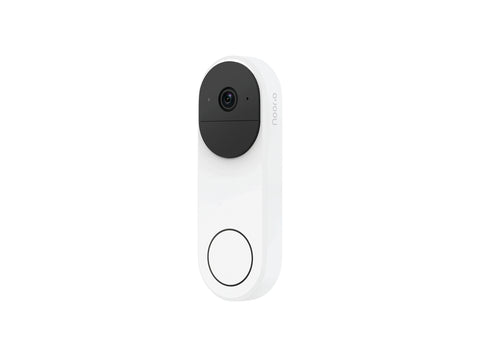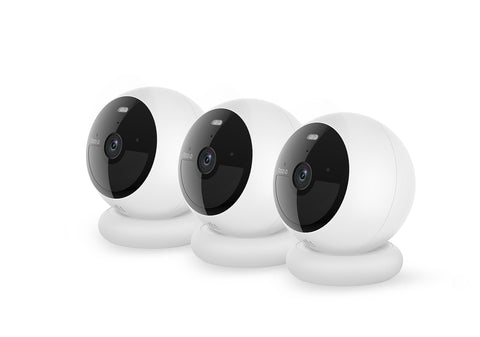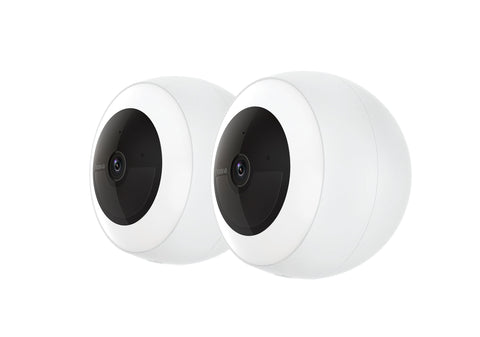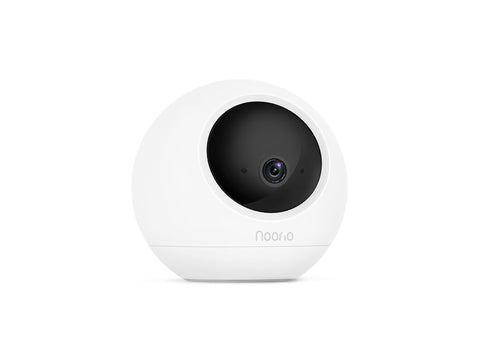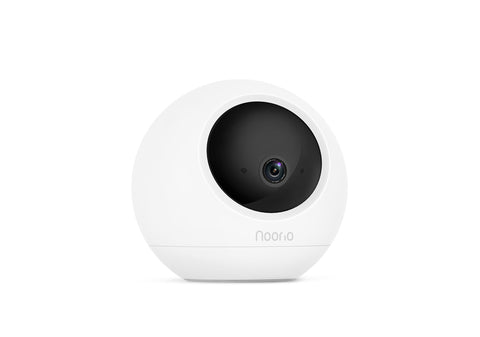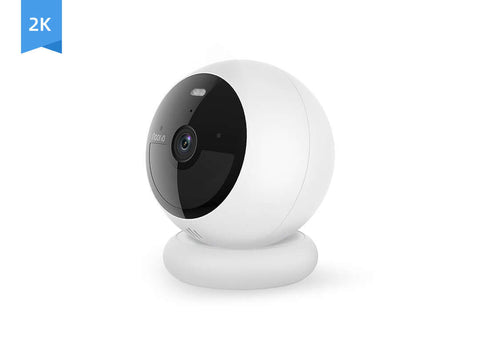As crime rates surge, tenants seek to bolster security through the installation of surveillance cameras. However, community associations often prohibit exterior cameras, prioritizing aesthetics, profits, and liability risks over residents' safety concerns. What is a reasonable compromise between these competing interests? This article explores the legal rights of renters to install cameras, best practices balancing safety and ethics, whether dated regulations neglect modern security realities, and how persistent yet compassionate advocacy can inspire positive change through tenant unity and education of resistant landlords. Ultimately, shared values must shape an evolved consensus serving all stakeholder interests with accountability and care.
1. Why Tenants Need Security Cameras After Renting Apartments
Renters gain immense peace of mind through home monitoring as an added security layer beyond just locks. Compelling reasons abound to install cameras inside rental units:
- Visibly deters would-be intruders
- Documents any unauthorized entries for police reports
- Captures faces and actions providing key evidence to aid investigations
- Discourages theft of valuables left at home
- Provides oversight of any caregivers, house cleaners, or maintenance staff visiting
- Enables remote monitoring of children and pets while away
Vulnerabilities multiply when renting a property managed by others:
- Too many unknown parties access rental buildings every day
- Outdated mechanical locks often fail to adequately protect entry points
- Landlords drag their feet on security upgrades to maximize profits
- High resident turnover means many past tenants still have keys or entry codes
- Previous evicted renters may retain motives and access for retaliation
Proactive monitoring brings immense peace of mind to tenants seeking empowerment and enhanced security against the backdrop of surging crime rates in cities. Well-positioned cameras become the electronic eyes watching when families cannot. They protect what matters most - our loved ones, possessions, privacy and dignity.
Outside of deterrence, camera footage often provides the evidence needed to actually solve crimes and prosecute criminals as well. As of June 2023 in St. Louis, the homicide clearance rate has jumped to 75%, credited to more surveillance cameras and improved police communication, states Lt. Blaskiewicz. This allows justice to be served where it may have otherwise been ignored or excused. Leveraging technology is the inspirational path forward, securing families amidst volatile conditions while supporting community-wide cooperation with law enforcement.

2. Can We Install Indoor Security Cameras?
The answer is generally YES! Wide freedoms exist in securing private living spaces if you avoid certain legal pitfalls.
Interior Camera Regulations and Best Practices
- No landlord approval required - Tenants have the right to install indoor surveillance equipment within their private rented spaces without needing formal permission. Landlords cannot prohibit cameras inside your walls.
- Notify the landlord as a courtesy - While approval is not mandated, inform your landlord anyway out of respect and transparency. This maintains open communication rather than acting unilaterally.
- Adjust angles thoughtfully - Be prudent in positioning cameras to only cover areas you personally occupy within the unit. Avoid any camera angles that inadvertently capture roommates' or neighbors' private bedrooms, bathrooms, etc.
- Inform roommates - Even if cameras do not cover shared spaces, the courtesy of notifying roommates of monitoring taking place builds trust and avoids misunderstandings later on.
- Monitor only your spaces - Do not record places beyond areas you actively occupy or control to respect privacy. For example, capturing building hallways or common rooms would risk violations.
- Prefer wireless equipment - Whenever possible, choose wireless security systems instead of equipment needing drilling or permanent wiring alterations prohibited under your lease. This prevents headaches.
3. Can We Install Outdoor Security Cameras?
The answer here is MAYBE. Stricter regulations limit exterior systems facing shared spaces based on privacy and security concerns.
Hazards Tenants Face Installing Exterior Surveillance
- Unauthorized access to private building entry data
- Public recording without proper consent
- Violating specific state laws around continuous surveillance
Best Practices Navigating Outdoor Camera Regulations
- Only capture footage around your own entryway
- Avoid shared stairs and landings at an angle
- Infrared sensors are preferable over continuous recording
- Transparent communication with landlord and neighbors
In theory, renters enjoy broad interior camera freedoms if they exercise prudence around equipment choices and monitoring angles. However, the legal waters muddy quickly when securing exterior entry points, leading to debates pitting community associations against security-seeking tenants. Balancing these concerns requires a nuanced approach that respects both individual privacy rights and collective security needs, often necessitating clear guidelines and open dialogue between all parties involved.
4. When to Ask for Permission to Install a Security Camera
While most indoor cameras avoid needing landlord approval, the consent remains wise in select contexts:
Outdoor Installations
- Exterior-facing systems warrant extra sensitivity around legal and ethical considerations:
- Privacy hazards multiply in public spaces or neighboring units
- Camera positioning must avoid continuous surveillance
- Video doorbells present heightened consent issues
Ideally, outdoor installations would face only your own entryway at limited angles. However, transparent communication and consent from the landlord becomes advisable for any outdoor surveillance.
Involved Equipment Modifications
Landlords rightfully seek to minimize unit damage between tenants. So, if your desired security system requires:
- Drilling into walls/ceilings
- Electrical wiring work
- Affixing adhesive strips that could remove paint
You should obtain written approval to mitigate excessive repair fees down the road. Where possible, favor removable, wireless equipment needing minimal permanent alterations.
While legal freedoms exist to install cameras, respecting the rental contract and property through consent protocols prevents later issues. Acting unilaterally often breeds conflict. Discussing contexts that affect shared spaces or building integrity first serves all parties.

5. Profit vs. Protection: Are Community Associations Neglecting Resident Security?
Critics argue that community associations emphasize profits over providing adequate security for residents. This is evidenced by rules strictly prohibiting exterior cameras across rental buildings despite rising crime rates.
Associations Counter That Cameras Present Issues:
- Threats to law-abiding resident privacy
- Sensitive access data vulnerabilities
- Disruption of uniform building aesthetics
- Increased liability risks
Yet many boards do prioritize renovations, amenities, and marketability to attract higher rental income over addressing security upgrade requests from desperate tenants. So, while associations raise fair, ethical concerns, profits often still dictate security decisions, leaving tenants under-protected.
A fair compromise is needed, balancing legitimate resident safety needs with logistical security risks. If profits set the security agenda, preventable crimes persist due to outdated systems, while lavish lobby renovations seem to take priority. Forward-thinking boards should collaborate with tenants and security firms to upgrade monitoring capabilities around entry points. This balances safety and ethical risks using technology thoughtfully installed by professionals.
6. Advocacy and Education: Driving Change for Secure Apartment Living
With city crime statistics doubling annually, tenants' calls for upgraded camera allowances must no longer be ignored. However, some boards prohibit exterior cameras based on overblown liability or privacy concerns. How can renters overcome these obstacles to achieve reasonable security improvements?

Empowering Tenants Through Unity
- Petition boards respectfully to update prohibitive camera policies
- Propose specific standardized camera models and positioning policies
- Build group proposals with like-minded neighbors showing collective need
- Consult lawyers to validate legal rights around security installations
- Reference industry best practices and liability protections
While resistance from boards based on slippery slope fears is understandable, the rising local crime statistics speak for themselves - the status quo is no longer acceptable. Renters can help associations move past unfounded anxieties towards reasonable consensus around enhanced security through persistent yet compassionate advocacy and education.
The path forward must validate renters' legitimate safety concerns and the basic need for preventative monitoring of building access points. With neighbors aligned around proposals reflecting shared values and clarity of purpose, obstructing voices clinging to outdated arguments will gradually lose their power. Progress becomes possible when vulnerable communities unite to inspire positive change through ethical persistence.
The Bottom Line
Renters want to protect their families just like associations aim to protect assets. With compassion-centered dialogue, updated regulations can evolve, securing people while avoiding liability pitfalls or privacy breaches. The ethical path places shared values around understanding and accountability over profits or prohibitions. If leaders validate the struggles of the underserved, innovative solutions become possible, upholding dignity for all.
